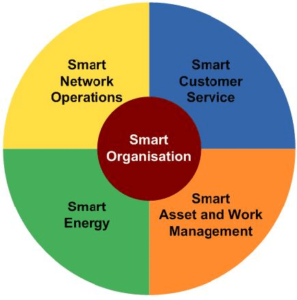
Southeast Asia’s power systems face huge challenges – from reliability issues, over steeply growing energy demands to questions related to the change in the generation and demand matrix. In addition to these challenges, plans to integrate large amounts of intermittent renewable energy sources are put forward. Last but not least providing energy access for all citizens remains a challenge for many parts of the region. Smart-grid technologies can facilitate solutions for demand growth, energy access and renewable integration.
In the framework of the joint cooperation between the Heads of ASEAN Power Utilities/Authorities (HAPUA) and the Renewable Energy Support Programme for ASEAN (ASEAN-RESP), GIZ (Deutsche Gesellschaft für Internationale Zusammenarbeit GmbH) and Siemens AG have teamed up to promote the utilisation of smart grid (SG) technologies in ASEAN with the aim to support the region’s growing energy demand and implementation of renewable energies to cope with future grid challenges and adapting it to the local context. The parties believed in SGs as a facilitator for a sustainable and economical development of Southeast Asia. In the approach SG technologies will be used to prepare grids for massive growth of demand, rapid expansion and integration of large amounts of renewable. The infrastructure will then build the backbone of sustainable growth. This activity is outlined in the cooperation agreement between HAPUA/ASEAN Centre for Energy and ASEAN-RESP, under the third thematic area on Strategy in integrating variable renewable energy into power systems.
This study presents the establishment of a smart grid roadmap for Indonesia’s power system including a discussion on the applied method. Experiences and lessons learned are condensed to 10 key questions that utilities should be able to answer, when starting an energy transition programme. The presented method and insights can be helpful not only for Southeast Asia but also for any utility that aims to leverage smart grid technologies in an optimised way.